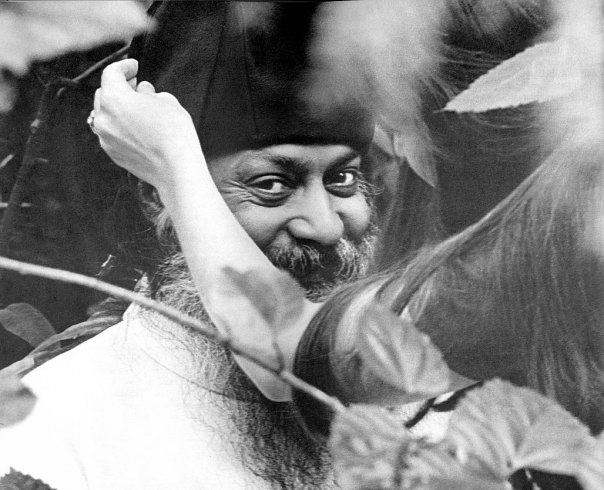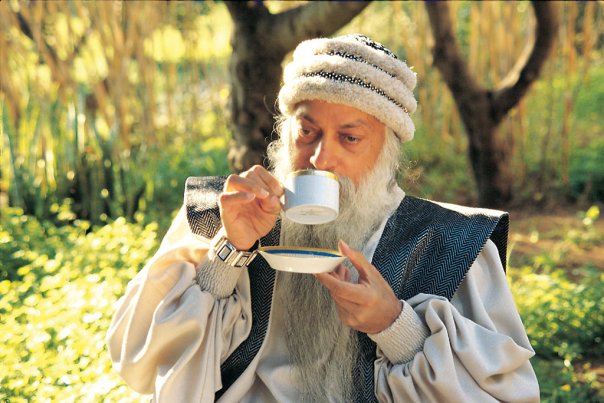Osho Quotes on Unawareness
- Nhận thức là đức tính, Osho trích dẫn về cơn ác mộng.
- Khổ là biểu tượng của vô minh; hạnh phúc là biểu tượng của nhận thức.
- Osho trích dẫn về cơn ác mộng, nhận thức; Osho trích dẫn về cơn ác mộng, Osho trích dẫn về cơn ác mộng.
- Osho trích dẫn về cơn ác mộng. Tâm trí đã chiếm hữu toàn bộ con người bạn; nó đã lan rộng như một căn bệnh ung thư khắp người bạn, không có gì bị bỏ lại. Bản ngã là căn bệnh ung thư của nội tâm, ung thư tâm hồn.
- Điều cần thiết là: Chuyển từ trạng thái ngủ sang thức. Hành trình hướng nội; không phải từ nơi này đến nơi kia, không phải từ đây đến Himalayas — nhưng từ vô thức đến ý thức, từ nhận thức đến nhận thức.
- Nhận thức là vĩnh cửu, nó không biết tới cái chết. Chỉ có vô nhận thức mới chết. Vì vậy nếu bạn vẫn còn vô thức, ngủ, bạn sẽ phải chết lần nữa. Nếu bạn muốn thoát khỏi nỗi đau khổ vì sinh tử liên tục này, nếu bạn muốn thoát khỏi vòng luân hồi sinh tử, bạn sẽ phải trở nên tuyệt đối cảnh giác. Bạn sẽ phải vươn tới ý thức ngày càng cao hơn.
- Nếu bạn đi sâu vào Chúa Giêsu bạn sẽ chỉ hiểu một điều: rằng hành động với nhận thức là đức hạnh và hành động mà không nhận thức được là tội lỗi. Tội lỗi không phải là một phẩm chất của bất kỳ hành động nào. Đức hạnh cũng không. Tội lỗi và đức hạnh tùy thuộc vào việc có hay không có nhận thức. Điều bạn làm không phải là tội lỗi hay đức hạnh. đó là CÁCH bạn làm điều đó: biết hoặc không biết. Nó không phụ thuộc vào hành động. Nó phụ thuộc, sâu xuống, về ý thức — bạn mang lại chất lượng gì cho nó.
- Chỉ có một tội lỗi duy nhất đó là sự thiếu hiểu biết, và chỉ có một đức tính duy nhất đó là nhận thức. Làm bất cứ điều gì bạn đang làm, nhưng vẫn là nhân chứng cho điều đó, và ngay lập tức chất lượng việc làm của bạn được chuyển đổi.
- Điều gì đúng và điều gì sai — nó phụ thuộc. Tất cả những gì tôi có thể nói với bạn, tất cả những gì tôi muốn bạn biết là: bất kỳ hành động nào được thực hiện trong nhận thức đều đúng và bất kỳ hành động nào được thực hiện trong vô thức đều sai. Đối với tôi, hành động đó không quan trọng, cách tiếp cận của tôi có liên quan, triết lý sống của tôi có liên quan; hành động đó không quan trọng, điều quan trọng là ý thức của bạn. Bạn đang hành động một cách vô thức hay có ý thức?
- Nhớ lại, có hai bản chất. Một là khi bạn đang ngủ; thì nhiều thứ là tự nhiên. Ai đó xúc phạm bạn, bạn trở nên tức giận, và đó là TỰ NHIÊN — nhưng chỉ trong vô thức, trong giấc ngủ. Bạn xúc phạm đến Đức Phật, anh ấy không trở nên tức giận — đó là bản chất cao hơn, một loại bản chất hoàn toàn khác. Anh ấy đang vận hành từ một trung tâm hoàn toàn khác. Anh ấy có thể cảm thấy thương hại bạn, không tức giận. Người đó vận hành thông qua nhận biết, bạn hoạt động thông qua vô nhận biết.
- Nhớ lại, thiền không phải là cái gì đó được thực hiện bởi tâm trí, đó là sự vắng mặt của tâm trí. Khi tâm trí ngừng thiền định xảy ra. Nó không phải là một cái gì đó ngoài tâm trí, nó là một cái gì đó ngoài tâm trí. Và bất cứ khi nào bạn tỉnh táo, tâm trí không. Vì vậy, chúng tôi có thể kết luận rằng cơn buồn ngủ của bạn là do tâm trí của bạn, sự không nhận biết của bạn là tâm trí của bạn, mộng du của bạn là tâm trí của bạn. Bạn di chuyển như thể say rượu, Không biết bạn là ai, Không biết bạn đang đi đâu, không biết tại sao bạn lại đi.
- Ý thức của chúng ta đang bị trói buộc sâu sắc; chúng tôi bị xiềng xích. Bên trong là nhà tù của chúng tôi, không ở bên ngoài. Những bức tường của nhà tù không ở bên ngoài chúng ta; nó tồn tại sâu trong tiềm thức của chúng ta. Nó tồn tại trong bản năng của chúng ta, nó tồn tại trong mong muốn của chúng tôi, nó tồn tại trong sự vô thức của chúng ta. Tự do là mục tiêu. Nhận thức là phương pháp để đạt được mục tiêu đó.
- Hoặc bạn có thể suy nghĩ hoặc bạn có thể quan sát hơi thở của mình. Bạn không thể làm cả hai cùng nhau. Hít thở và suy nghĩ là những quá trình chỉ có thể tồn tại trong bạn — trong nhận thức. Trong vô thức, cả hai đều có thể tiếp tục: bạn có thể tiếp tục thở và bạn có thể tiếp tục suy nghĩ. Nhưng nếu bạn trở nên nhận biết, hoặc bạn có thể suy nghĩ hoặc bạn có thể thở; và khi bạn thở với nhận thức, suy nghĩ biến mất. Toàn bộ ý thức của bạn trở nên tập trung vào hơi thở. Và thở là một quá trình đơn giản: bạn không cần phải làm điều đó, nó đã xảy ra rồi. Bạn chỉ có thể mang ý thức của mình đến với nó.
- Đau khổ là cái bóng của tâm trí: tâm trí có nghĩa là ngủ, tâm trí có nghĩa là vô thức, tâm trí có nghĩa là không biết. Tâm trí có nghĩa là không biết bạn là ai và vẫn giả vờ rằng bạn biết. Tâm trí có nghĩa là không biết bạn đang đi đâu và vẫn giả vờ rằng bạn biết mục tiêu, rằng bạn biết cuộc sống có ý nghĩa như thế nào — không biết gì về cuộc sống và vẫn tin rằng bạn biết.
- Hãy đem toàn bộ tâm trí của bạn ra ánh sáng và bạn sẽ thấy — tất cả những gì khốn khổ bắt đầu chết, và tất cả những gì đẹp đẽ và hạnh phúc bắt đầu nảy mầm. Trong ánh sáng của ý thức, cái còn lại là tốt, và cái gì chết là xấu. Đó là định nghĩa của tôi về tội lỗi và đức hạnh. Đức hạnh là cái có thể phát triển với nhận thức tuyệt đối; không có khó khăn gì. Tội lỗi là thứ không thể lớn lên cùng với nhận thức; nó cần vô nhận biết để trưởng thành. Sự vô ý thức là điều cần thiết cho nó.
- Khổ là do sự vô nhận biết của bạn gây ra, hạnh phúc là do nhận thức của bạn gây ra; và giữa tâm trí không nhận biết và tâm trí nhận thức là toàn bộ cuộc sống — thế giới và niết bàn. Vô thức bạn đang ở trong thế giới có ý thức bạn đang ở niết bàn. Vô thức bạn thuộc về Caesar, ý thức bạn thuộc về Chúa Kitô. Bạn là cùng một người, và năng lượng trở nên có ý thức hay vẫn còn vô thức cũng giống nhau. Khi ý thức đang ngủ say — nó bất tỉnh. Nó có thể bị kích động, nó có thể được đưa đến nhận thức, nó có thể cháy như một ngọn đèn sáng. Ý thức bùng cháy như ngọn lửa, như ánh sáng rực rỡ, là Phật. Và khi toàn bộ con người bạn trở nên tràn ngập ánh sáng, bạn đã trở nên nhận biết. Đó là lý do tại sao Siddharth Gautama được gọi là Phật; cái tên này xuất phát từ gốc 'bodha'. Bồ Đề là tiến trình, phật là kết quả cuối cùng.



